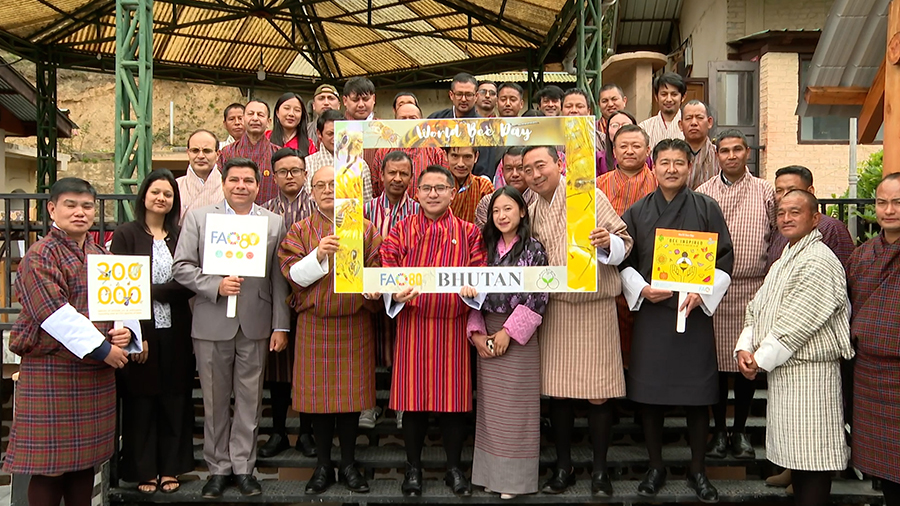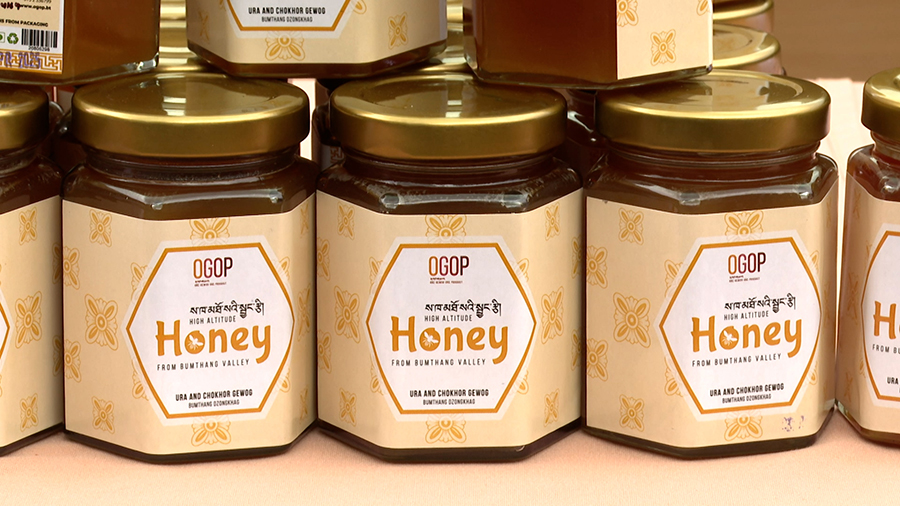 Considering Bhutan’s pristine environment and rich biodiversity, the country is well-positioned to produce premium honey for niche international markets. In line with this potential, Bhutan has set a target to increase honey production to over 80 metric tonnes by 2029, as outlined in the 13th Five-Year Plan. Coinciding with World Bee Day today, a vision was drafted to make Bhutan’s honey industry a resilient, competitive, and export-oriented sector by 2034.
Considering Bhutan’s pristine environment and rich biodiversity, the country is well-positioned to produce premium honey for niche international markets. In line with this potential, Bhutan has set a target to increase honey production to over 80 metric tonnes by 2029, as outlined in the 13th Five-Year Plan. Coinciding with World Bee Day today, a vision was drafted to make Bhutan’s honey industry a resilient, competitive, and export-oriented sector by 2034.
 In 2024, more than 7,500 households across Bhutan were engaged in beekeeping, collectively producing nearly 42 metric tonnes of honey and generating over Nu 36 M in revenue.
In 2024, more than 7,500 households across Bhutan were engaged in beekeeping, collectively producing nearly 42 metric tonnes of honey and generating over Nu 36 M in revenue.
Due to limited production, most of this honey is sold in local markets. However, with growing support from relevant agencies, beekeepers are preparing to scale up production to meet export potential.
“I think we could boost production if the government provides more support. It’s not that the government isn’t supporting us, but it will be difficult to increase production with the same level of support we have been receiving so far,” said Chimi, Beekeeper at Beekeepers’ Cooperative of Bumthang.
“We haven’t been able to produce honey on a large scale due to limited funding. However, with financial support and access to markets outside Bhutan, we are ready to increase production and explore new opportunities,” said Khemraj Chhetri, Beekeeper at Chhukha Darla Beekeeping Group.
To support this growth, the National Livestock Research Centre has outlined a comprehensive strategy.
This includes scaling up the use of modern hives, supplying beekeeping equipment through a cost-sharing mechanism, importing high-quality germplasm for breeding, and fostering market linkages.
Additionally, the plan focuses on modernising apiculture practices through research and innovation, conducting training for beekeepers, offering technical support, and encouraging environmental stewardship.
The vision aims for inclusive, sustainable and globally recognised apiculture industry, producing natural, and premium quality, value-added products for high end markets driving prosperity, promoting enhancing health-food security and supporting biodiversity conservation.
“The number of hives in the boxes that the colonies are formed that has been increasing, but they have not been producing efficiently. So, there are number of technical assistance programme that can help farmers to learn new techniques, to learn new ways of collecting honey. We have very small groups of beekeepers; what we need to do is bring them together. So we create the scale, we create more quantity,” said Erick J. Zeballos, Senior Rural Institutions Officer, Asia and the Pacific Service, FAO Investment Centre.
This initiative marks a foundational step toward empowering rural communities, generating employment, and elevating Bhutanese honey on the global stage.
Namgay Wangdi
Edited by Kipchu









